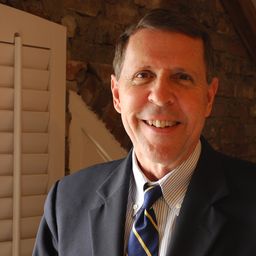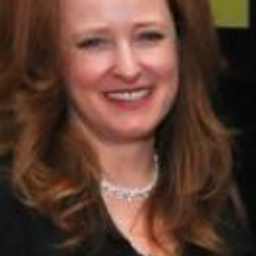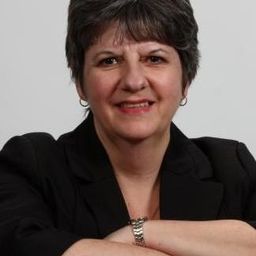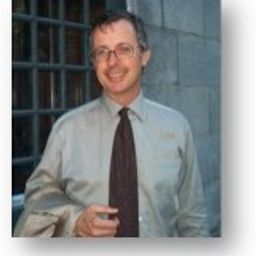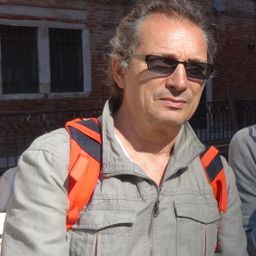
Jean-Louis Tornatore is professor at the University of Burgundy, where he currently teach heritage studies, museology and anthropology, and researcher at the Centre Georges Chevrier – Savoirs: normes et sensibilités (CNRS-uB - Dijon). His research extends in two very closely connected directions: a political socio-anthropology of the "relationship to the past" (heritage, memory, culture) and of ways of being "in time," from a pragmatic perspective; and an anthropology of the expertise and commitment of researchers, from a "nonauthoritarian" perspective. He conducted a large-scale survey of the memory and heritage work carried out by regular people in an industrial area in crisis—the iron-rich Lorraine region—and the artistic and cultural recuperation of machines and industrial sites (connecting art, memory, and heritage). He coordinated and participated recently in two research projects, one on the affordances of monuments and their publics, the other on popular dynamics around the concept of "intangible cultural heritage." He is now interested in emerging forms of "civic heritage-izations" and experiences of anti-capitalism.
Publications récentes / recent publications : « Words for Expressing What We Care About. The Continuity and the Exteriority of the Heritage Experience », in Julien Bondaz, Florence Graezer Bideau, Cyril Isnart, Anais Leblon (dir.) Local Vocabularies of « Heritage ». Translations, Negotiations and Transformations / Les vocabulaires locaux du « patrimoine ». Traductions, négociations et transformations, Berlin-Münster-Wien-Zürich-London, Lit Verlag, 2015 ; « Retour d’anthropologie : le "Repas gastronomique des Français". Éléments d’ethnographie d’une distinction patrimoniale » / “Anthropology’s Payback: The Gastronomic Meal of the French. The Ethnographic Elements of a Heritage Distinction”, Ethnographiques.org, n° 24, 2012 (en ligne) ; « Du patrimoine ethnologique au patrimoine culturel immatériel : suivre la voie politique de l’immatérialité culturelle » / “From ethnological heritage to intangible cultural heritage: following the political track of cultural immateriality”, in Chiara Bortolotto (dir.), Le patrimoine culturel immatériel. Enjeux d’une nouvelle catégorie, Paris, Éditions de la MSH, 2011, p. 213-232 ; « L’esprit de patrimoine » / “The spirit of heritage”, Terrain, 2010, n° 55, p. 106-127 ; (dir.), L’invention de la Lorraine industrielle. Quêtes de reconnaissance, politiques de la mémoire / Inventing industrial Lorraine. Quests for recognition, politics of memory, Paris, Éditions Riveneuve, 2010.
Sessions auxquelles Prof. Jean-Louis Tornatore participe
Mardi 7 Juin, 2016
Dans un texte majeur, «L’arrêt de monde», Deborah Danowski et Eduardo Viveiros de Castro explorent le thème de la fin du monde tel qu’il se déploie aujourd’hui «dans l’imaginaire de la culture mondialisée». Entre fiction, philosophie et anthropologie, ils déroulent la scène sombre de nos futurs d’espèce humaine devenue force géologique et autodestructrice vivant non plus sur mais dans une planète considérée comme un être vivant et une puissance menaçante (Gaïa). Si le spectre de la catastroph...
Sessions auxquelles Prof. Jean-Louis Tornatore assiste
Vendredi 3 Juin, 2016
What does heritage change for tourism? | Le patrimoine, ça change quoi au tourisme? Ce débat veut interroger les relations entre le tourisme et le patrimoine et dépasser ainsi les idées reçues sur l'antagonisme entre le tourisme "corrupteur" et le patrimoine qui en serait la victime. Il s'agit donc de repenser le tourisme comme un réel acteur du patrimoine, de sa valorisation et de son appropriation, y compris par les populations locales. Cela présuppose, au p...
This forum will explore the current directions of critical heritage studies and what makes ACHS distinctive. Panel members will discuss what the term critical means to them, and what directions they would like to see develop in the future. To help develop an open dialogue, the session will also give considerable time to contributions from the audience.
Welcome addresses and cocktail, followed by the Concordia Signature Event "The Garden of the Grey Nuns". As the opening ceremony and cocktail take place in the former Grey Nuns' Motherhouse, recycled into campus residence and reading rooms by Concordia University, delegates will also have the possibility to discover the video Three Grey Nuns (3 minutes, by Ron Rudin and Phil Lichti. Three Grey Nuns recount their memories of communal life in the Grey Nun’s Motherhouse. Built...
Samedi 4 Juin, 2016
Heritagization (the various means by which cultural features—either material or immaterial—are turned into a people’s heritage) has recently become, for Amerindian groups, a major means to gain visibility and recognition in the new Latin American social and political landscapes where cultural diversity is endowed with an increasingly critical role. Different forms of cultural heritagization have largely been studied elsewhere, particularly in North America. However, they are far less known in...
With sustainable development gaining momentum as a priority of UNESCO heritage policies, an increasing number of food-related nominations are being submitted for inscription on the lists of the Convention for the safeguarding of the intangible cultural heritage. The Mediterranean diet, traditional Mexican cuisine and the Japanese dietary culture of washoku are just some examples of this booming phenomenon. Since food and foodways are powerful references for self-representation and ident...
Most of what we experience as heritage emerges into conscious recognition through a complex mixture of political and ideological filters, including nationalism. In these processes, through a variety of devices (museums, scholarly research, consumer reproduction, etc.), dualistic classifications articulate a powerful hierarchy of value and significance. In particular, the tangible-intangible pair, given legitimacy by such international bodies as UNESCO, reproduces a selective ordering of cul...
Dimanche 5 Juin, 2016
Heritagization (the various means by which cultural features—either material or immaterial—are turned into a people’s heritage) has recently become, for Amerindian groups, a major means to gain visibility and recognition in the new Latin American social and political landscapes where cultural diversity is endowed with an increasingly critical role. Different forms of cultural heritagization have largely been studied elsewhere, particularly in North America. However, they are far less known in...
With sustainable development gaining momentum as a priority of UNESCO heritage policies, an increasing number of food-related nominations are being submitted for inscription on the lists of the Convention for the safeguarding of the intangible cultural heritage. The Mediterranean diet, traditional Mexican cuisine and the Japanese dietary culture of washoku are just some examples of this booming phenomenon. Since food and foodways are powerful references for self-representation and ident...
"What does heritage change?" is a multifaceted question to which the answer(s) are in primary respects related to real-life negotiations among different groups of citizens, cultures, races, ethnic groups, sexual identities, and social classes about received, official and/or widely accepted or accomodated intangible attributes, cultural traditions, historic monuments, buildings, and other transmitted or revived historical legacies. Heritage designated by and for whom, for what motivations, an...
Lundi 6 Juin, 2016
Le patrimoine fait aujourd’hui l’objet d’attentions autant que d’agressions et de destructions. Cela peut s’expliquer par les difficultés de son identification ou de sa conservation. Cela peut plus profondément s’expliquer parce que, dès le départ, il célébre un événement ou conserve une mémoire qui peut être ou devenir une source de dissenssions et de conflits politiques. Enfin, sa reconnaissance suscite des gains économiques pour les uns mais des pertes pour les autres. Mais peut-être...
Mardi 7 Juin, 2016
The closing dinner of the conference, called “Pawâ” according to a French-Canadian tradition borrowed from the Native American lexicon, will be an opportunity to discover, in the heart of the Old Port of Montreal, an original culinary creation by the caterer Agnus Dei, from the renowned Maison Cartier-Besson in Montreal, leader in its field for its boundless creativity and event expertise. The dinner, in the form of stations, will offer delegates an exploration of Quebecois culinary heritage,...

